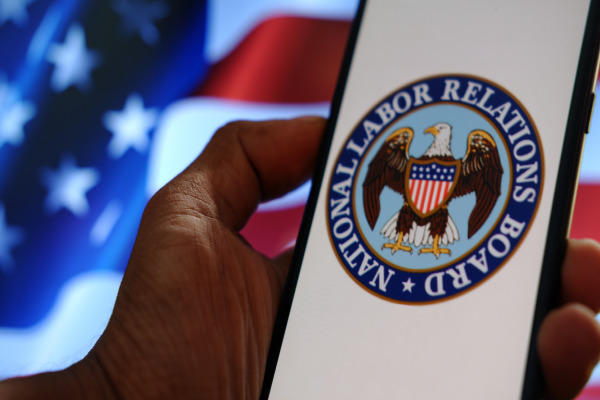The National Labor Relations Board has issued a final labor rule that expands the definition of “joint employer” and makes companies liable, along with their franchisees, for labor terms and conditions like union contracts, scheduling, pay, hiring and firing. This revives a President Obama-era rule.
Under the new rule, a company that is found to be a joint employer might have to become more involved in establishing and enforcing workplace policies and negotiating with unions.
The rule is expected to go into effect on December 26.
The rule has eliminated a regulation adopted during Trump’s administration and supported by business groups that mandated companies to have “direct and immediate” control over contract and franchise workers to be considered joint employers.
In a statement, National Labor Relations Board Lauren McFerran said this rule was the “legally correct return to common-law practices and a practical approach to ensuring that the entities effectively exercising control over workers’ critical terms of employment respect their bargaining obligations under the NLRA.”

Many business groups and trade associations have opposed the new rule. Condemning the regulation, the American Hotel & Lodging Association (AHLA) said in a statement that the rule will affect business-to-business relationships in a way that will limit opportunities for small businesses and entrepreneurs and “threaten the franchising model.”
Terming the labor board’s actions as “devastating” to the hotel industry and the millions of people employed, AHLA said this was a “partisan gambit to force unions on hotel franchisees and their employees” and several other small businesses and workers in the U.S.
“NLRB’s goal is to coerce businesses to the bargaining table with workers they do not actually employ to artificially increase unionization. This dramatic shift will effectively dismantle the franchise business model – the single greatest avenue to successful entrepreneurship in American history and a system that has helped our industry build millions of well-paying jobs and careers. AHLA is reviewing opportunities to legally challenge this regulation to restore certainty for America’s lodging industry,” said AHLA President and CEO Chip Rogers.
AHLA had previously filed formal comments mentioning the industry’s concerns regarding the draft of the rule. For decades, an employer was considered a joint employer if it maintained “substantial direct and immediate control” over the terms and conditions of employment, AHLA said.
Employers and employees began depending on this definition and courts rejected multiple efforts to add a more subjective legal standard to obligate third parties to bargain collectively.
While fully supporting the right to form a union and bargain with employers, AHLA said it opposed the new rule, which lays down a new standard establishing indirect or unexercised control as sufficient to trigger joint employer status. The “subjective definition” will result in predisposed outcomes irrespective of facts and circumstances.
“The regulation will create new liability for hoteliers and potentially invalidate existing franchise agreements. It will cause businesses to reevaluate relationships and marginalize franchisees’ control over their own operations. It may also lead to fewer opportunities for small business owners to enter the market by causing consolidation to mitigate risk,” AHLA said in the statement.
With this new rule, companies and franchisors will have to tread lightly when it comes to oversight of another entity’s workers, Dana Kravetz, firm managing director, Michelman & Robinson, told HOTELS.
“We’ve seen this before. Once again, joint employer liability can be triggered in the wake of direct or indirect control of third-party employees — say, valet parkers, which are outsourced — or even the unexercised ability to exert control. This means that hoteliers, and franchisors in particular, should be intently focused on brand standards but careful not to weigh in on operational issues of third parties, especially those involving workers obtained from staffing firms, vendors and other business-to-business arrangements. Doing so can prove to be costly,” Kravetz said.
In the wake of the new rule, hotel owners and franchisors should think about the following — train management not to exert or indicate direct or indirect control over another entity’s workers; look for clear indemnity provisions in contracts with franchisees and other third parties so that the cost of joint employer liability can be passed on; and add provisions in third-party agreements which can impose restrictions on exercising direct or indirect control, Kravetz added.
Expressing disappointment with the “arbitrary standards,” the National Federation of Independent Business (NFIB) said in a statement that the new rule could make compliance a “nightmare” for owners of small businesses who are not equipped with teams of lawyers, accountants and compliance staff needed to navigate the “vague and subjective” definitions.
In 2020, NFIB supported the labor department’s earlier joint employer rule, which simplified the definition of joint employer status and focused on the actual exercise of control over workers to ascertain joint employer status, NFIB said.
